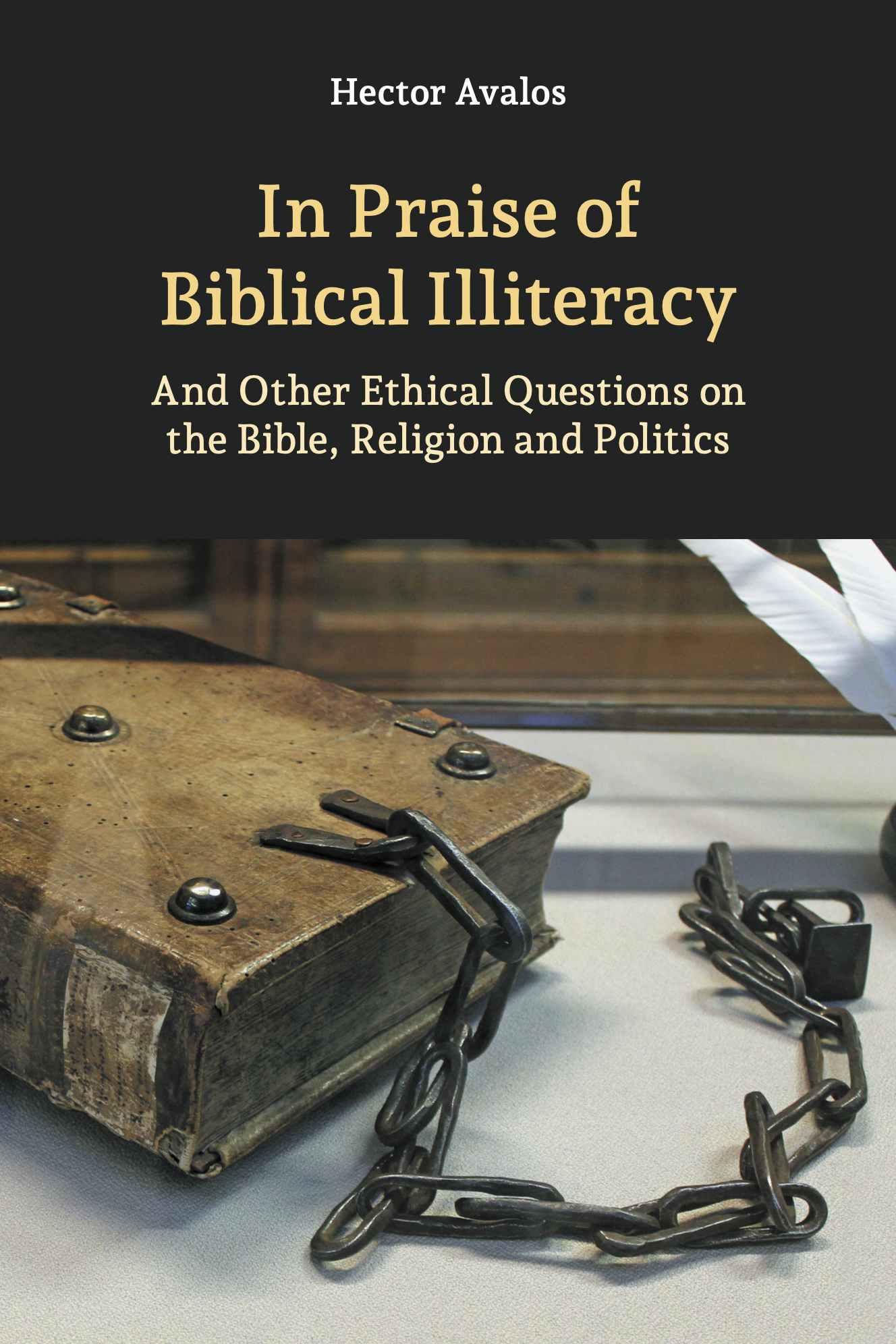In Praise of Biblical Illiteracy and Other Ethical Questions on the Bible, Religion and Politics
Published: Mar 2026
£110.00
In Praise of Biblical Illiteracy brings together the bold, provocative, and deeply reasoned writings of the late Dr. Hector Avalos, longtime professor of Religious Studies at Iowa State University. A biblical scholar, a publicly engaged atheist, and a beloved teacher, Avalos devoted his career to asking questions that others too often avoided—about the authority of the Bible, the uses and misuses of religion in public life, and the ethical costs of unexamined faith.
From the first chapter—which lends its name to this volume—and across decades of essays, articles, and public commentary, Avalos challenges both scholars and lay readers to think critically about the role biblical texts play in shaping culture and politics. With both clarity and wit, he dismantles claims of biblical exceptionalism, exposes the dangers of Christian nationalism, and highlights the ways religion has often worked to marginalize or disenfranchise vulnerable communities.
Yet Avalos’s writing is not merely critical—it is constructive. He insists that honest engagement with the Bible and with religious traditions can create the space to consider more just and humane ways of living together. In his writings, he also offers opportunities to reflect upon a most important question: namely, as to whether ancient texts should guide twenty-first-century ethics and policy in a Constitutional republic.
This collection shows Avalos as a scholar both fearless in his critique and generous in his teaching. It includes articles written for the University of Arizona’s ‘Bible & Interpretation’, as well as op-eds that appeared in The Des Moines Register and The Ames Tribune among others. Whether confronting the political weaponization of scripture, questioning the moral claims of religious institutions, or urging readers to embrace secular humanist values, Avalos’s work remains urgent and illuminating.This volume is a testament to the enduring relevance of Avalos’s thought—and a challenge to all who care about the intersection of faith, reason, and the public good.
The volume was collated and edited by former students Richard McCarty, Adam Meseke and Janine Putnam.
In Praise of Biblical Illiteracy and Other Ethical Questions on the Bible, Religion and Politics
£110.00
In Praise of Biblical Illiteracy brings together the bold, provocative, and deeply reasoned writings of the late Dr. Hector Avalos, longtime professor of Religious Studies at Iowa State University. A biblical scholar, a publicly engaged atheist, and a beloved teacher, Avalos devoted his career to asking questions that others too often avoided—about the authority of the Bible, the uses and misuses of religion in public life, and the ethical costs of unexamined faith.
From the first chapter—which lends its name to this volume—and across decades of essays, articles, and public commentary, Avalos challenges both scholars and lay readers to think critically about the role biblical texts play in shaping culture and politics. With both clarity and wit, he dismantles claims of biblical exceptionalism, exposes the dangers of Christian nationalism, and highlights the ways religion has often worked to marginalize or disenfranchise vulnerable communities.
Yet Avalos’s writing is not merely critical—it is constructive. He insists that honest engagement with the Bible and with religious traditions can create the space to consider more just and humane ways of living together. In his writings, he also offers opportunities to reflect upon a most important question: namely, as to whether ancient texts should guide twenty-first-century ethics and policy in a Constitutional republic.
This collection shows Avalos as a scholar both fearless in his critique and generous in his teaching. It includes articles written for the University of Arizona’s ‘Bible & Interpretation’, as well as op-eds that appeared in The Des Moines Register and The Ames Tribune among others. Whether confronting the political weaponization of scripture, questioning the moral claims of religious institutions, or urging readers to embrace secular humanist values, Avalos’s work remains urgent and illuminating.This volume is a testament to the enduring relevance of Avalos’s thought—and a challenge to all who care about the intersection of faith, reason, and the public good.
The volume was collated and edited by former students Richard McCarty, Adam Meseke and Janine Putnam.


